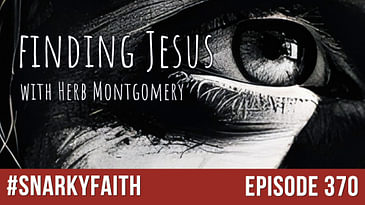In "Finding Jesus," Herb Montgomery takes readers on a deep dive into the often-overlooked aspects of Jesus' message, spotlighting his call to radical love, justice, and solidarity with the marginalized. Our upcoming interview will explore the journey behind Montgomery's provocative reinterpretation, discussing the ways in which this book seeks to not only reshape our understanding of the Christian faith but also how it applies to contemporary issues of social injustice. Expect to hear about Montgomery's critical take on traditional interpretations, his vision for a more inclusive and action-oriented faith, and the practical implications of living out Jesus' teachings in today's world.
We'll talk about all that and plenty more snark!
Links for More:
Get Herb's book "Finding Jesus" here: https://amzn.to/3w0DD6R
More about Herb: https://renewedheartministries.com/
Big thanks to these outlets that make the Christian Crazy possible:
Come along for the ride as we skewer through life, culture, and spirituality in the face of a changing world.
Check out the other fantastic Quoircast partners: The Heretic Happy Hour Podcast, Apostates Anonymous, The Messy Spirituality Podcast, Ideas Digest, The New Evangelicals

